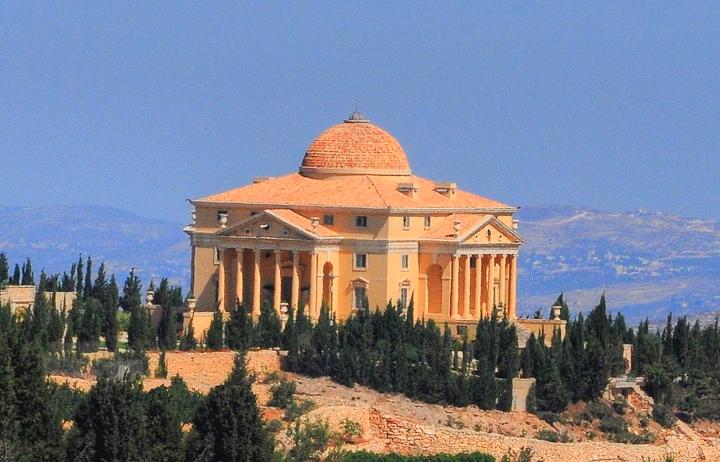After leaving the ruins of Shechem, we drove up to Mt. Gerizim Archeological Park.
These are the ruins of Luz or Luza, an ancient Samaritan village. According to the Samaritan Torah (Pentateuch), Luza is Beth-El where Jacob dreams of a ladder and where he was named Israel. Most scholars locate Beth-El near Ramallah, close to the modern city of Beit-El.
Overlooking modern day Nablus, where the ancient city of Shechem was located.
The red domed building is the church we had visited (prior post).
This villa was built by a wealthy billionaire from Nablus.

We walked down the hill into the town of Kiryat Luza, the last wholly Samaritan village. There are approximately 750 Samaritans left in the world.
We stopped for a restroom break. Our bus driver and a villager taking a smoke.
We then walked next door to a Samaritan museum. We couldn't believe our eyes.
A watch dog watches our every move.
At the museum, this Samaritan priest spoke to us about their faith. They believe only in the first 5 books of the Old Testament.
He got a call from his wife. ("Be sure to bring home some bread, milk...?)
He explained their genealogy. They are descendants of Aaron.
He told their history (Joshua 8)
They still practice sacrifice to this day





















































